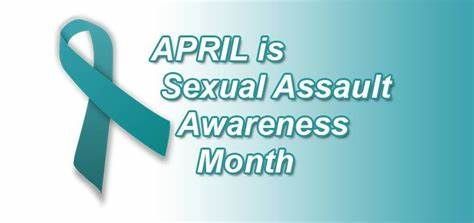Winter Turns into Spring - The Blog



Impostor Syndrome and Self -Compassion
Impostor Syndrome occurs for all sort of reasons and it pushes us to become extremely hard on ourselves. It also robs us from seeing ourselves as human beings doing their best, just as they are. Thankfully, self-compassion can help us address the painful feeling of not being good enough.

The definition of the Impostor Syndrome, on Wikipedia: " Impostor syndrome (also known as impostor phenomenon or impostorism) is a psychological occurrence in which an individual doubts their skills, talents, or accomplishments and has a persistent internalized fear of being exposed as a fraud. Despite external evidence of their competence, those experiencing this phenomenon do not believe they deserve their success or luck (...)"
There is also along list of reason as to why, some of us feel like they never good enough, no matter how well they are doing, in work, in their relationships, in pursuing their dreams and goals.
- Family expectations
- Overprotective parent(s) or legal guardian(s)
- Graduate-level coursework
- Racial identities
- Attribution style
- Anxiety
- Depression
- Low trait self-esteem
- Perfectionism
- Excessive self-monitoring, with an emphasis on self-worth
Although it isn't classified as a mental illness, there are strong links to depression, anxiety and such. It is a painful "condition" that can easily, in some cases, slip into a feeling of futility, depression and suicidal thoughts.
Some of us never had a chance growing up, with parents watching us like hawks, looking at, or even creating, opportunities to criticized our every move, which were always labelled as rubbish, worthless, no matter how we tried to appease our carers' anger and abuse. Others might had over-protective parents: they might have wanted you to be safe and successful in life but, the results were suffocating or you felt you had to push yourself to please them. Whatever the case, it is soul crushing. It is too much responsibility for children to meet adults' high expectations - very often dictated by Society's hight standards.
I remember, on my last volunteer role at the helpline (for Mosac) I received high praises from my supervisor. I really couldn't see how well I was doing in supporting callers and clients. It isn't just in working situations I felt like an impostor, but also in my relationships, especially as a mother. It didn't matter how many times friends were telling me what a great mother I was/ am, I didn't believe them. This was because I was certain I was hurting my child. I can now see clearly: indeed I am a good mum, not a perfect one (it doesn't exists) but a good one!
While listening to some friends talking about their struggles with Impostor's Syndrome, recently, it occurred to me that this is how I felt last year: an impostor in my own life. "What am I doing here? I am rubbish at this! Where is the point of my existence?" I was in such a dark place I couldn't see who I was anymore. That rapidly declined to feeling suicidal. With the help of a trauma informed therapist - Karen Isbister at Becoming Whole - I realised how I have been feeling like this my whole life, starting with my unwelcomed arrival into this world.
So, how can we face our difficulties with the Imposter Syndrome and how ever it impact u? The popular "Faking it till you make it." isn't the solution! It is about being "real", by going within ourselves and acknowledging our pain - ideally with a therapist you feel safe with and trust. Awareness/ mindfulness is the first step for change: if we can't be present in our body, we can't feel its discomfort. So we sit, for a few minutes and we pay attention: where does it hurt? where do you hold you tension? Is your breathing relaxed?
The second step is acceptance. Acceptance is one of the elements within the practice of Mindful Self-Compassion. It naturally arises as we tend to our inner world with self-compassion and kindness. When we turn towards ourselves/ our feelings with acceptance, then, paradoxically, change naturally occurs. We might say to ourselves: "I am feel sad/ upset/ angry/ despair, etc. We learn that there is no such things as "good" or "bad" feelings/ emotions/ inner experiences. We can say to ourselves: "Ok, this is how you feel. I am sorry this is so difficult. I am here." This can include a comforting gesture, such as placing our hands on our heart or wherever you feel tension in your body.
Another element of self-compassion is "humanity": during our most difficult times, we tend to think we are alone in this world. This is the very nature of Depression and other mental illnesses. With "humanity", we gently remind ourselves that, other human beings are experiencing some degree of pain, at some point in their lives. This is in no way to minimize our experiences ("Other people have it worse than you do. Stop complaining") rather, it is to remind ourselves we aren't alone. I often think of friends whom I know struggle too with anxiety, for instance.
Then, comes
kindness: what would you say to your closest friend when s/he is going through a rough patch? "What do you need? I am here. It is understandable for you to react like this, it is tough. Gently does it." It feels weird to start with but, taking time to say caring and kind words to ourselves, in time, will sooth us. It will become a natural thing to do.
This process of change happens in many ways for many people, therefore, we can't really compare someone else's life with our own. Sadly, we do! The Impostor's Syndrome comes with what we call an "Inner Critic!" (See "Shrinking the inner critic, Pete Walker, MA Psychology). If we listen to our inner critic, instead of telling to shut up, most of the time, we will find it is trying to push us, for us not to feel certain emotions. There are instances when this Inner critic is a reflection of an outer critic, we grew up with. Pre-empting criticism, is another protective skill. Sometimes it is necessary to get angry at this inner part, if it feels like a recording tape from an abusive parent, it is healthy to do so.
There is no 123 or ABC steps to recovery. This process can't be rush either. I know too well, when we experience deep emotional pain/ emotional flashbacks, we are advised to distract ourselves, to look on the bright side or whatever else people come up with. We then tell ourselves to heal or recover quicker and better. We are programmed to stop the pain, or to avoid it. It is instinctive. Very often, it is even beyond our control (See "The four Fs," Pete Walker). With self-compassion, we learn to slow down, to notice. We learn to go through our times of discomfort with loving kindness. We learn to love ourselves in the difficult times.
- For more info on Self-Compassion, follow Dr Kristin Neff, PhD -
Love, compassion and Kindness,
Sylvie



